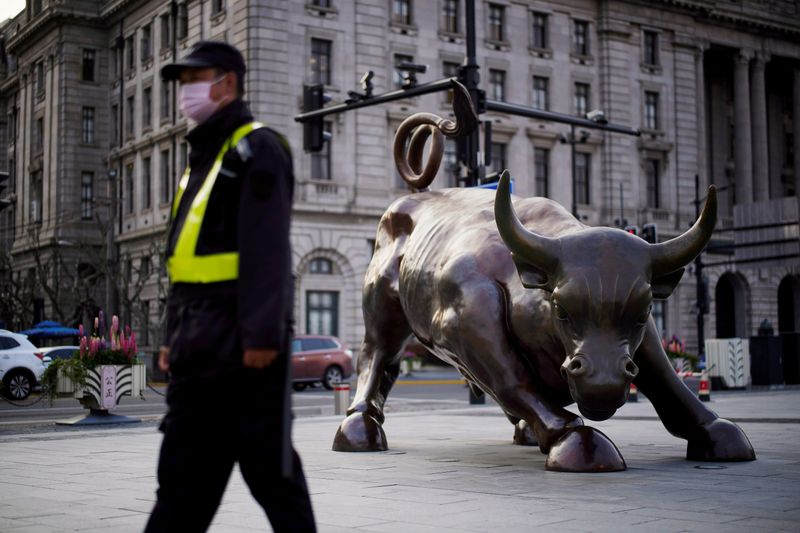By Ambar Warrick
Investing.com-- Most Asian stock markets steadied on Tuesday after a series of steep losses on growing fears of a looming recession, while Chinese markets recovered on expectations of more stimulus measures by the government.
Regional markets took some relief as the dollar paused its seven-day rally and fell from 20-year highs. U.S. Treasury yields also appeared to have paused their ascent.
China’s bluechip Shanghai Shenzhen CSI 300 index rose 0.7%, while the Shanghai Composite index gained 0.8%. Major bank stocks rose after the People’s Bank of China injected about $24.7 billion of liquidity into the sector via repo market operations.
The move is intended to boost liquidity in the banking sector ahead of the quarter's end, and is also an extension of the central bank’s vow to increase liquidity and stimulate economic growth.
Asia’s largest economy is struggling to revive economic growth after a series of COVID-related lockdown measures this year. Data on Tuesday also showed that Chinese industrial profits fell further in August.
Japan’s Nikkei 225 index gained 0.5%, while Taiwan stocks added 0.4%. Regional markets appeared to have paused their losses after falling sharply over the past three sessions.
But sentiment remained constrained as traders feared a looming economic slowdown across the globe. Weak economic data from Europe, coupled with a brewing currency crisis in the UK severely dented risk-heavy markets this week.
Southeast Asian markets in particular saw extended losses, given their higher exposure to risk. Philippine stocks were by far the worst performers for the day, plummeting 4.5% as investors feared prolonged economic disruptions from Typhoon Noru.
The typhoon made landfall in the country on Monday, causing widespread disruptions due to heavy rainfall and high-speed winds.
Thai stocks lost 0.6%, while Indonesian stocks shed 0.5%. Asian markets also had a weak lead-in from Wall Street indexes, which fell overnight in volatile trade.
U.S. stocks appeared to have slowed their pace of losses. Futures also indicated a potential recovery later on Tuesday. But markets remained wary of a dead cat bounce, given that the factors behind the recent stock market rout were still in play.
Rising interest rates across the globe are set to severely crimp liquidity and halt any major gains in the stock market. Asian stocks in particular tumbled this year as the Fed kicked off a monetary tightening cycle.
